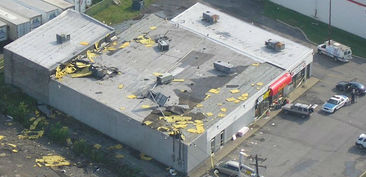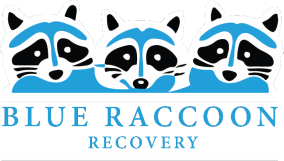Commercial Property Damage Claims |

Commercial property insurance policies differ from residential, and when property losses occur, they tend to be more complex and extensive. Many times commercial businesses have unique policies and endorsements that in sometimes are structured for their specific needs. These "manuscript policies" involve very significant and detailed issues and challenges that require a lot of time a trained professional with experience in these areas. A business or property management’s first priority is to resume normal business operations as soon as possible. Retaining a licensed public adjuster should be one of the very first steps taken in this process follow a loss. Doing so will allow management to focus on the things that will resume business operations. Generally, insurance companies assign their most experienced claims adjusters to work on commercial claims because of the complexity of the process. If you do not have a public adjuster with the same level of experience representing your best interests working for you, it can put you at a major disadvantage.
One of the reasons we work so well with businesses is that we understand the role you're in and work tirelessly to allow you to focus on business operations while we protect and restore your property. Blue Raccoon handles commercial claims of industries and types. These include, but are not limited to: apartment complexes, condominium associations, industrial claims, small businesses, municipal claims, hospitals, hotels and motels, educational institutions, retail stores, office buildings, and more. Blue Raccoon has has experience in just about every kind of commercial property loss over the years.
An example of how the details of a commercial policy can greatly affect the outcome of a claim is no insurance or average clauses. Insurance companies have found, through actual math and science, that a majority of losses are not total losses, but in fact partial losses. Businesses know this as well. A result of this knowledge that sometimes occurs is when two property owners with similar properties have them insured for different amounts. One owner insuring for 100% of the property value while the other only insured for half. In a partial loss, that was half or less than the value of the business, both parties are paid an equal amount. In an attempt to even things up and not lose money on these partially insured properties, the insurance industry devised the co-insurance concept. This means that if you are insured for an amount less than the value of your building/property, you may penalized at the conclusion of the adjustment process. In a way, you are now a co-insurer of your own loss. A majority of commercial property policies have this formula in them. Understanding and calculating co-insurance is obviously complex. Depending on whose numbers are used, there can be a huge financial difference in the outcome. Deductibles may also be confusing due to the fact that a majority of adjusters will apply the deductible to your payment. Your policy may allow your deductible to be taken off the entire loss. This makes a significant difference in the net payment you receive. Are you entitled to salvage recovery money? Some claims are settled to where the insured keeps the salvage in a trade-off for a reduced total loss payment.
Commercial businesses are usually more sophisticated in insurance matters. Brokers can be hired to structure policies that cater specifically to commercial business insurance needs. Sometimes in larger corporations, in-house risk managers are employed to manage insurance issues as the business grows and changes. A risk manager’s responsibility varies from company to company, and can be very broad. Often when a business suffers property damage or loss, the initial reaction is to contact the risk manager and/or broker to have the claim be reported. While risk managers and brokers should have an important role in the insurance claim, they are not adjusters. This means that when there is a loss, someone still has to handle the complex details that accompany adjusting and documenting the damage/loss. Enter a public adjuster from Blue Raccoon. It’s our experience that a business who has a risk manager or broker should bring on a professional public adjuster to help the team.
These issues are just a few of the things to consider and what we help clients deal with on a regular basis. As experienced public adjusters, we at Blue Raccoon are experts in the claims process. We use all our resources and expertise to help you recover your claim. Remember, making sure that you get treating and compensated fairly is our #1 priority. We work for you.
One of the reasons we work so well with businesses is that we understand the role you're in and work tirelessly to allow you to focus on business operations while we protect and restore your property. Blue Raccoon handles commercial claims of industries and types. These include, but are not limited to: apartment complexes, condominium associations, industrial claims, small businesses, municipal claims, hospitals, hotels and motels, educational institutions, retail stores, office buildings, and more. Blue Raccoon has has experience in just about every kind of commercial property loss over the years.
An example of how the details of a commercial policy can greatly affect the outcome of a claim is no insurance or average clauses. Insurance companies have found, through actual math and science, that a majority of losses are not total losses, but in fact partial losses. Businesses know this as well. A result of this knowledge that sometimes occurs is when two property owners with similar properties have them insured for different amounts. One owner insuring for 100% of the property value while the other only insured for half. In a partial loss, that was half or less than the value of the business, both parties are paid an equal amount. In an attempt to even things up and not lose money on these partially insured properties, the insurance industry devised the co-insurance concept. This means that if you are insured for an amount less than the value of your building/property, you may penalized at the conclusion of the adjustment process. In a way, you are now a co-insurer of your own loss. A majority of commercial property policies have this formula in them. Understanding and calculating co-insurance is obviously complex. Depending on whose numbers are used, there can be a huge financial difference in the outcome. Deductibles may also be confusing due to the fact that a majority of adjusters will apply the deductible to your payment. Your policy may allow your deductible to be taken off the entire loss. This makes a significant difference in the net payment you receive. Are you entitled to salvage recovery money? Some claims are settled to where the insured keeps the salvage in a trade-off for a reduced total loss payment.
Commercial businesses are usually more sophisticated in insurance matters. Brokers can be hired to structure policies that cater specifically to commercial business insurance needs. Sometimes in larger corporations, in-house risk managers are employed to manage insurance issues as the business grows and changes. A risk manager’s responsibility varies from company to company, and can be very broad. Often when a business suffers property damage or loss, the initial reaction is to contact the risk manager and/or broker to have the claim be reported. While risk managers and brokers should have an important role in the insurance claim, they are not adjusters. This means that when there is a loss, someone still has to handle the complex details that accompany adjusting and documenting the damage/loss. Enter a public adjuster from Blue Raccoon. It’s our experience that a business who has a risk manager or broker should bring on a professional public adjuster to help the team.
These issues are just a few of the things to consider and what we help clients deal with on a regular basis. As experienced public adjusters, we at Blue Raccoon are experts in the claims process. We use all our resources and expertise to help you recover your claim. Remember, making sure that you get treating and compensated fairly is our #1 priority. We work for you.


